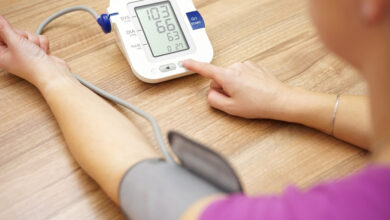Eating the right things will do wonders for your body, but eating the wrong ones can cause total chaos
The obvious part of what happens when you eat is the easy part – you satisfy your hunger or simply satisfy the desire to eat something just because it looks good, smells good, or because you know it will taste good. However, what really happens when you eat whatever you have chosen to eat is the most important part about eating because of how it will ultimately affect your body. So, the key is choosing to eat what is good for you and avoiding what you know it is not.
So, what happens when you practice healthy eating habits?
Good things and nothing more. For starters healthy foods aid digestion thus getting all the nutrients out of the food you just ate which is also beneficial for your skin and hair. For instance, according to Jamie Levitt, MS, RD, LD, CNSC, Clinical Nutrition Manager at Ocala Health System, eating food high in fiber will help lower your cholesterol and support healthy blood sugar levels, ultimately reducing the risk of cardiovascular issues, and maintaining a healthy weight. Additionally a diet high in fiber will help with promoting regularity as well as encouraging the growth of healthy bacteria in your gut in the form of prebiotic, thus preventing the development of stomach conditions such as GERD and diverticulitis.
Snacking on healthy foods such as vegetables and fruits throughout the day will keep your metabolism going and will keep you from being so hungry before each meal that you end up over-eating or eating unhealthy food. Fruits and vegetables are good sources of fiber in addition to having a larger concentration of vitamins and minerals which are essential to staying healthy.
Your body absolutely loves breakfast – and so should you. It does wonders for your body. Eating breakfast boosts up your metabolism, fueling up your body for the tasks at hand during the day. A good nutritious breakfast is the foundation of a healthy diet which according to Levitt stabilizes your blood sugar – when you eat in the morning that food replenishes your blood glucose levels and glucose is your main source of energy fueling your body as well as your brain. Additionally, eating in the morning enhances your mood, improves your concentration, and even helps you maintain a healthy weight. Also, eating a breakfast high in fiber will fill you up, keeping you feeling full longer, thus avoiding unhealthy snaking throughout the morning.
Along with eating a nutritious breakfast appropriate water intake during the day (8 – 10 8 oz. glasses is recommended) is important for your body to function properly – it is essential to maintain a good balance of your body’s fluids. For instance, keeping your body hydrated means your muscles will be energized, your kidneys will be able to function properly, you will be able to maintain normal bowel function and for aesthetics purposes, your skin will look refreshed and supple.
What about organic food intake? How much better is it for your body? Well, for starters, “organic” is how the product was grown and processed. Farmers of organic meats and produce do not use conventional ways of fertilizing. “These foods were not exposed to synthetic chemicals, genetically engineered materials, sewage sludge or irradiation,” said Levitt. Adding that even though these products are free of chemicals that bad for you, the Mayo Clinic and the USDA claim that these products may not necessarily contain any higher nutritional value than non-organic foods. Therefore, it is more a matter of preference as to whether you want the chemical free food over conventional food rather than a matter of nutrition.
So, what happens when you practice unhealthy eating habits?
Nothing good, of course. That is the case, especially, when eating fast foods, which are high in cholesterol, sodium, sugar, fat and calories. Anytime you consume these types of food, whether it is at a fast food restaurant or at home, you are predisposing your body to an array of health issues, starting with having a total nutritional imbalance and overweight problems. These are problems which in the long run lead to chronic illnesses such as coronary heart disease and Type 2 diabetes. For instance, having a body mass index of over 30 will increase your chances of developing other health issues such as asthma, arthritis, sleep apnea, gall bladder disease and even depression.
Furthermore, as if it was not bad enough all the ill effects of eating the “wrong stuff” eating the “wrong stuff” late in the day is even worse, particularly late at night. For instance, consuming caffeinated products before going to bed can cause problems letting you fall asleep resulting in feeling tired and groggy the following day. Therefore, foods such as chocolate, coffee, and energy drinks should be completed eliminated off your late night snack list. Another culprit in the disruption of your sleep and rest is consuming liquid foods such as soup as they will keep you up at night running to the bathroom.
The truth of the matter is that whether it is late at night or during the day, the smart way to lead a healthier way of life is to eat smart. Avoid fatty, high in sugar foods and make sure to consume most of the calories during the day while you are active the most. Take care of your body and feed it what it needs to keep it healthy for the long haul.






